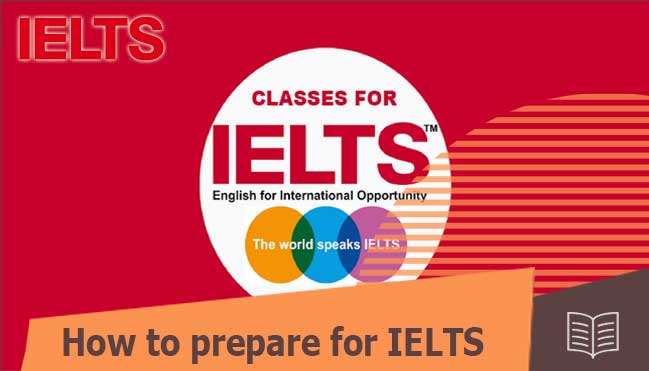IELTS Preparation: Your Guide to Success

The IELTS (International English Language Testing System) is one of the most widely recognized English language proficiency tests, often required for university admissions, job placements, or immigration purposes in English-speaking countries. Achieving a high band score in IELTS requires careful preparation, especially since it tests multiple aspects of your English proficiency—listening, reading, writing, and speaking.
For those looking to excel, understanding how to approach each section is crucial. This article will provide a comprehensive guide to IELTS preparation and highlight the growing trend of IELTS preparation online, which has made studying for the test more accessible than ever.
Understanding the IELTS Exam Format
Before diving into preparation strategies, it’s essential to understand the structure of the IELTS test. There are two main types of IELTS exams: IELTS Academic and IELTS General Training.
- IELTS Academic: For those who wish to pursue higher education or professional registration in an English-speaking environment.
- IELTS General Training: Typically for those aiming to migrate to countries like the UK, Australia, or Canada or those seeking work experience in an English-speaking setting.
Both versions test four key skills:
- Listening: 40 minutes (30 minutes for the listening test and 10 minutes for transferring your answers to the answer sheet).
- Reading: 60 minutes (Three long texts for Academic, more general texts for General Training).
- Writing: 60 minutes (Two tasks, with different types of essays and reports).
- Speaking: 11-14 minutes (Three parts involving an interview, a monologue, and a discussion).
How to Prepare for IELTS: Key Strategies
1. Assess Your Current Level
Start by identifying your strengths and weaknesses. You can take practice tests or mock IELTS exams to gauge your current level. This will help you pinpoint areas that need improvement.
2. Create a Study Plan
A well-structured study plan is essential for effective IELTS preparation. Depending on how much time you have before the test, allocate specific periods to focus on each section of the test—Listening, Reading, Writing, and Speaking.
For instance:
- Week 1-2: Focus on Listening and Reading.
- Week 3-4: Concentrate on Writing and Speaking.
Break your study time into manageable chunks and be consistent in following your schedule.
3. Familiarize Yourself with Test Formats
Each section of the IELTS test has a unique format. Make sure to practice with IELTS sample papers and previous exam questions. Many resources are available online, including official practice materials provided by IELTS.
4. Improve Listening Skills
For the Listening section, practice understanding different English accents (British, Australian, American, etc.). You can do this by:
- Watching English movies or TV shows.
- Listening to podcasts, news, or audio books in English.
- Taking mock listening tests under timed conditions.
5. Enhance Reading Techniques
In the Reading section, you’ll need to manage your time effectively, as there are multiple passages with several questions each. Practice skimming and scanning techniques to quickly locate relevant information in the text. It’s also important to practice identifying the main ideas and key points.
6. Master Writing Skills
The Writing section involves two tasks:
- Task 1: For IELTS Academic, this may require you to describe a graph, chart, or diagram. For IELTS General, it might involve writing a letter.
- Task 2: An essay where you present an argument or point of view.
Work on structuring your essays clearly with a solid introduction, body, and conclusion. Pay attention to grammar, vocabulary, and sentence structure.
7. Practice Speaking Regularly
For the Speaking section, fluency and coherence are key. Practice speaking English daily, either with a study partner or by yourself. Focus on answering questions clearly and expanding on your ideas. You can also practice common IELTS Speaking topics like travel, hobbies, education, or work.
8. Use IELTS Preparation Books and Apps
Several IELTS preparation books and apps can aid your study process. Some popular options include:
- The Official Cambridge Guide to IELTS.
- Barron’s IELTS Superpack.
- IELTS Practice Tests Plus.
Many of these books also offer access to online resources and practice tests, making them highly useful for self-study.
9. Take Mock Tests
Taking regular mock tests under exam-like conditions will help you develop time management skills and build confidence. Many websites offer free IELTS mock tests or timed practice tests. These simulate the actual exam environment and give you an idea of what to expect on test day.
IELTS Preparation Online: A Growing Trend
With the rise of e-learning, IELTS preparation online has become increasingly popular. Whether you’re looking for comprehensive IELTS courses, private tutoring, or self-study materials, there’s an abundance of online resources that can cater to your needs.
Benefits of IELTS Preparation Online
- Flexibility: Online courses allow you to learn at your own pace and on your schedule. This is especially helpful for working professionals or students with limited time.
- Access to Expert Tutors: Many online platforms offer access to certified IELTS instructors who provide personalized feedback on your practice essays, speaking exercises, and mock tests.
- Interactive Learning: Online courses often include videos, quizzes, practice exercises, and discussion forums that make learning more interactive and engaging.
- Cost-Effective: Online IELTS courses are often more affordable than in-person classes, and many platforms offer free resources or trial periods.
- Variety of Resources: You can find a range of learning materials online, including video tutorials, audio exercises, eBooks, and sample tests.
Top Platforms for IELTS Preparation Online
- British Council’s IELTS Online Courses: The British Council offers both paid and free online courses that cover all four sections of the IELTS test. These courses are designed by experts and allow you to study from anywhere.
- Magoosh IELTS: Magoosh offers a flexible online course with video lessons, practice tests, and study plans. It’s known for its user-friendly platform and effective test prep strategies.
- IELTS Liz: A popular website offering free video lessons, tips, and practice exercises. IELTS Liz also provides detailed explanations for each part of the test, making it a valuable resource for students.
- IELTS Buddy: IELTS Buddy offers a wide range of free practice tests, tutorials, and tips for all sections of the IELTS exam. The website is user-friendly and covers all essential aspects of IELTS preparation.
- Udemy: Udemy has several IELTS preparation courses taught by experienced instructors. These courses cover various strategies and offer access to practice materials.
Conclusion
IELTS preparation requires dedication, practice, and an understanding of the test format. Whether you choose to prepare with traditional resources or through IELTS preparation online, the key is to develop a consistent study plan and work on your weak areas.
By following the strategies mentioned in this guide and using the right tools, you can enhance your English language skills and improve your chances of achieving a high band score on the IELTS test. Remember, consistent practice and a focused approach are the most important elements of IELTS success.





